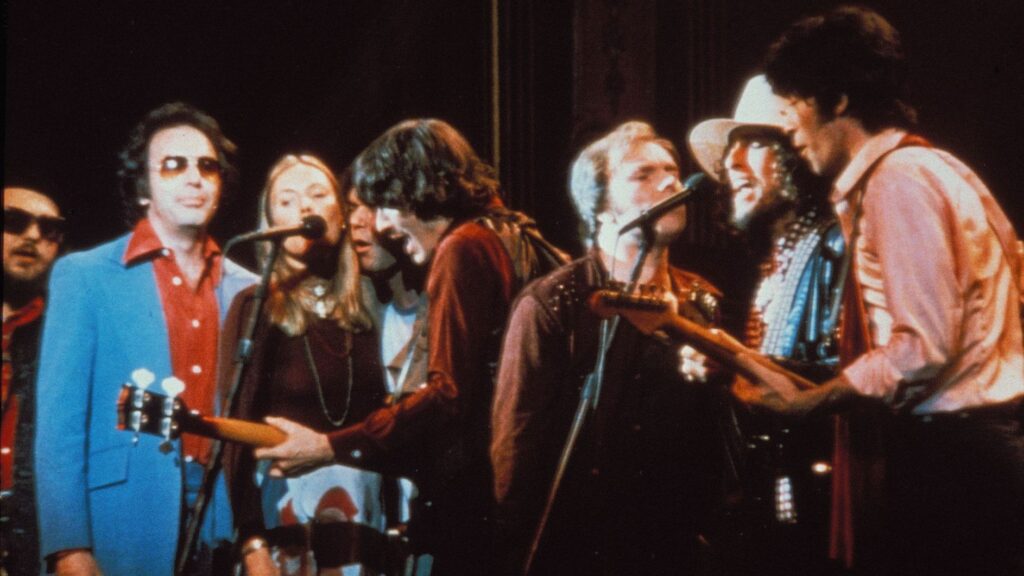
Last Thursday, on Thanksgiving Day, many Americans gathered around their televisions in food induced stupors to return once again to the annual tradition of watching Martin Scorsese’s The Last Waltz (1978). For many years during my childhood The Last Waltz was as much a part of our Thanksgiving traditions as turkey and pumpkin pie. My mother in particular held The Last Waltz in a place very close to her heart. But this year I, with my mother, saw The Last Waltz in a theater on the big screen.
For me it was the first time experiencing Scorsese’s classic as it was meant to be seen. Looking around the theater there were few people my age or younger. Mostly the audience was composed of Baby Boomers who had come back to revisit a pivotal cultural text that helped define a moment in their generational history. As Punk and New Wave music burst upon the stage of popular culture the titans of classic Rock bid adieu to The Band and, without really knowing it at the time, that vein of culture that grew out of the underground art scene of the sixties, blossomed into a swinging counter culture, then found corporate backing and finally sold out.
It seems kismet that Martin Scorsese, who co-edited Woodstock (1970), should helm the film of The Band’s farewell concert. Woodstock announced to the mainstream the gospel of rock n’ roll for the Vietnam era and then The Last Waltz sounded the funeral bells of that movement, that moment. Scorsese took all of the lessons and observations he made while editing Woodstock and applied it to The Last Waltz to create a concert documentary unlike any other in which the filmmaker is in unprecedented control of how images are recorded, selected, and cut together. Woodstock possessed all of the promise of summer while The Last Waltz represents the last feast of the harvest before a long, cold, and lonely winter.
Since its release, The Last Waltz has become a kind of cultural capsule that Baby Boomers administered to their children to turn them onto classic rock and Beat Poetry. The Last Waltz is, after all, a record of the giants of popular rock music performing together at the top of their game. To see The Last Waltz as an impressionable youth is to discover Dylan, Mitchell, Morrison, Waters, and Young; it is to engage with a free wheelin’ spirit and romantic bohemia that cannot exist today beyond the dreams or fantasies of the starry eyed adolescent.
Arguably The Last Waltz ceased being just one of the greatest concert movies ever made the second it was released on home video. As soon as Baby Boomers could take the late Robbie Robertson home with them a rite of passage was born. The spirit of rock n’ roll as it was in the sixties and seventies is passed like a torch from Baby Boomer parent to child with the same reverence and respect as a Holy sacrament. If ever there was a case for The Last Waltz being the greatest concert film of all time then this phenomenon is it.
